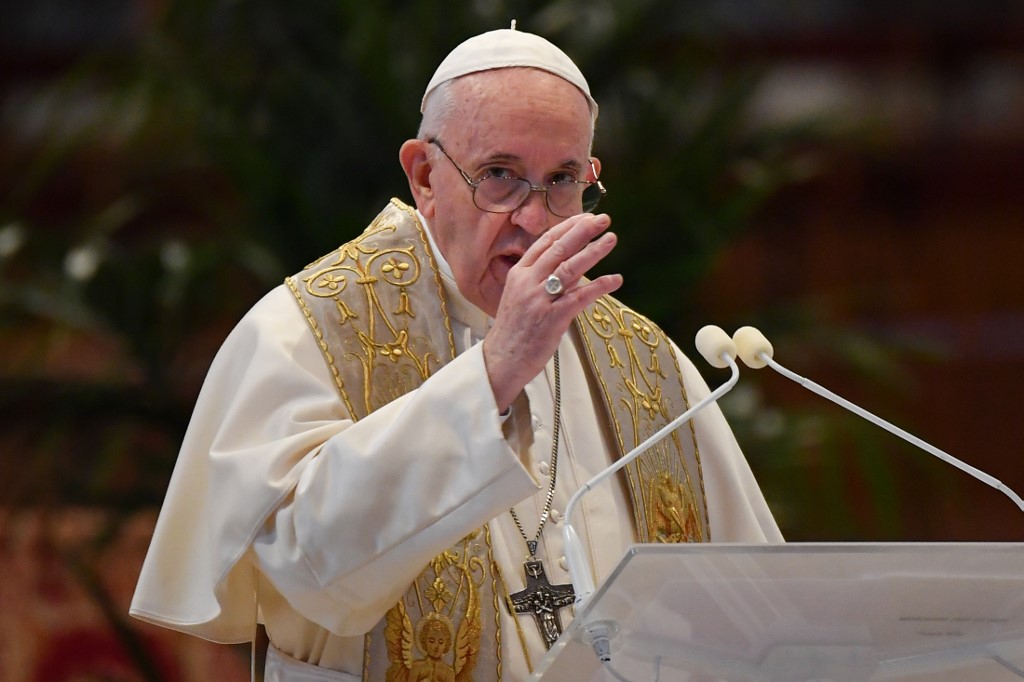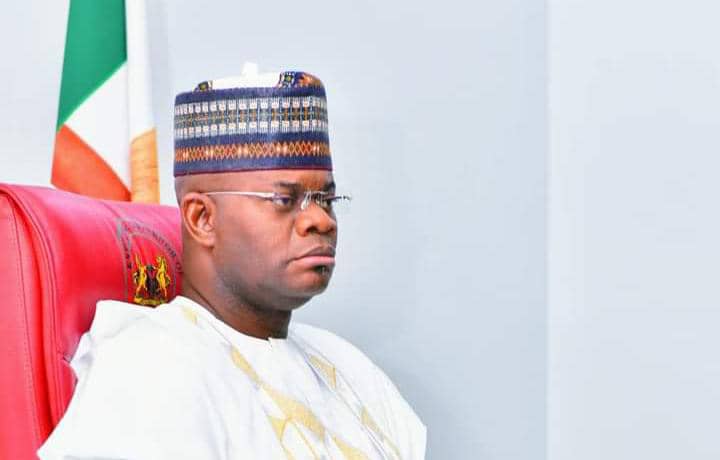By Peter N. Peters
There seems to be a never-ending cold war within the body of Christ, a conflict as old as Christianity itself. This division arises from disagreements over Christian doctrines, practices, and modes of worship. Interestingly, each faction derives its source and authority from the Holy Bible.
The Apostle Paul was among the first to raise the alarm against this division with his admonition to the Church in Corinth: “For while one says, ‘I am of Paul,’ and another, ‘I am of Apollos,’ are you not carnal?” (1 Corinthians 3:4). Despite this timely warning, the disagreement festered, eventually developing into the gulf known today as denominations within Christendom.
These divisions stem from humanity’s quest to attain ‘true’ worship of God. Therefore, the motive is good; none are self-serving. All are intended to mold believers into heavenly-bound followers of Christ. This is why, despite any reservations one may have against a particular denomination or doctrine, you will still find heavenly-bound worshippers in each of them. It simply means that, despite differences in doctrines, the message of salvation remains central to worship in all Bible-believing churches.
The message of salvation encompasses the following ten core beliefs:
a. We believe in God the Almighty, Creator of Heaven and Earth.
b. We believe in His only begotten Son, Jesus Christ.
c. We believe that He came down from heaven and lived among us as a man.
d. We believe that He died on the cross, was buried, and on the third day, He resurrected and ascended to Heaven.
e. We believe that through His death on the cross, He paid the ultimate price for our sins and reconciled us with our Father in Heaven.
f. We believe that there is Heaven and there is Hell; whoever accepts Jesus as their personal Lord and Savior shall not die but have everlasting life in Heaven.
g. We believe that the Holy Bible is the word of God, profitable for doctrine, reproof, correction, and instruction in righteousness.
h. We believe that He left us the Holy Spirit as a comforter and guide, just as He promised.
i. We believe that through prayer and obedience to His words, the Holy Spirit is empowered to guide us in right living here on earth and to ascend to heaven when our earthly journey is over.
j. We believe that Christ will return, not as a Son, but as a King, to judge the living and the dead.
If indeed all members of the body of Christ share these beliefs, then what is it in our doctrines and denominations that sets us apart? Why do some denominations find it uncomfortable to worship alongside others? Why is it not possible for the leaders of our various denominations to sit together in an atmosphere of mutual love, discussing matters of common interest concerning the Church and our nation? Why is there so much disunity among us? Our diversity in worship should be our wealth; it should be our strength, not our weakness
You will discover that each denomination has its areas of strength that can enhance our worship and devotion to God if we remain open to one another.
The Roman Catholic Church, for instance, being the oldest universal church in history and the source from which other denominations derive their existence, serves as the custodian of Church history. Its mode of worship is largely derived from practices that predate the Bible. Critics often point out that some beliefs, doctrines, and practices are not supported by Scripture, but this stems from historical context. For example, the symbols present in Roman Catholic worship were once teaching tools at a time when the art of writing was nonexistent. Kudos to the Catholic Church for retaining some of these historical worship relics. Those who misinterpret this as idol worship are unfair and miss the point. If you want to experience originality in worship even before the advent of the Holy Bible, the Roman Catholic Church is the place to be.
The Anglican Communion, also one of the Protestant Churches, emerged as one of the first groups to protest what they perceived as wrong with the Roman Catholic Church’s practices. The break with the Roman papacy and the establishment of an independent Church of England, known as the “Anglican Communion,” occurred during the reign of Henry VIII (1509–1547). When Pope Clement VII refused to approve the annulment of Henry’s marriage to Catherine of Aragon, the English Parliament, at Henry’s insistence, passed a series of acts that separated the English church from the Roman hierarchy and, in 1534, made the English monarch the head of the English church (Encyclopedia Britannica).
Despite this disagreement, the Anglican Communion largely inherited the Roman Catholic Church’s rich liturgical methods of worship. Additionally, the spiritually enriching Anglican hymns and canticles contribute to defining the Anglican heritage. The same can be said for other orthodox churches, such as the Methodist and Presbyterian churches, which are part of the bloc known as the Christian Council of Nigeria (CCN).
The Pentecostal Movement is traced to the Azusa Street Revival, led by the African American preacher, William J. Seymour, in 1906 in a series of revival meetings lasting from 1906 – 1915 in a modest farmhouse in Azusa Street, Los Angeles.
These events are, therefore, often considered the catalyst for the global spread of Pentecostalism. The revival attracted people from all over the world. It became known for its racially diverse congregation, its emphasis on spiritual gifts (like speaking in tongues, healing, and prophecy), and its energetic worship.
The Pentecostal movement thus brought a refreshing new life and vibrancy to worship, emphasizing the work of the Holy Spirit among believers. Its mode of worship is primarily influenced by the events of Pentecost, as recorded in Acts of the Apostles 2:1-4. At Pentecost, the believers received the baptism of the Holy Spirit: “And divided tongues as of fire appeared to them and rested on each one of them. And they were all filled with the Holy Spirit and began to speak in other tongues as the Spirit gave them utterance” (Acts 2:3-4).
The roots of the Pentecostal movement in Nigeria lie in missionary works of American and British Evangelicals and Pentecostal movements of the 1960s, which Nigerians encountered through international studies, Pentecostal outreach, American televangelism, and other Christian media. Through these emerged the Assemblies of God Church and the Apostolic Church. Pentecostalism has made the work of the Holy Spirit evident in our worship today, through miracle healings and life transformations, emphasizing Christ’s message of ‘new birth’ with the evidence of speaking in tongues.
The success of the Pentecostal movement in Nigeria inspired widespread ‘charismatization’ of Nigerian churches. It found its way into the young Nigerian Christian elite while they were yet in high schools and universities. Upon graduation, these became the foundation of the emergent Pentecostal churches. It immediately became attractive to many members of the Christian upper middle class by the late 1970s (Ogbu Kalu, African Pentecostalism: An Introduction (Oxford: Oxford University Press, 2008)).
Other blocs, including the Organization of African Instituted Churches (OAIC), TEKAN, and ECWA Fellowships, also have their unique histories and modes of worship. Most importantly, their central message is the salvation of souls.
Even though all churches share the same goal and message of salvation, it is intriguing that the leaders of these various blocs and denominations do not have a forum to discuss matters of mutual interest concerning the Church and the nation. The Christian Association of Nigeria (CAN), whose major role was to forge a common front against the attitude of the Muslim-dominated ruling class to sideline the Church, has achieved precious little by way of Christian unity.
The disunity in the body of Christ has rendered the Church weak and vulnerable, making it an easy target for enemies of the Church, resulting in incessant killings and kidnappings of both ministers of the gospel and worshippers, as well as destruction of worship places and properties. Could this also explain why, despite the Church’s prayers, evil seems to thrive in our nation? This stands in stark contrast to the power and authority that Christ and His disciples wielded over satanic forces.
It is utterly amazing to see that politicians, despite belonging to different political parties and interests, find common ground, especially when push comes to shove. Unbelievers always find reasons to come together and agree on their plots, yet our leaders in the body of Christ avoid one another like the plague. Sadly, the disunity among us is the sole factor empowering agents of darkness to wreak havoc on the Church and Christians unrestrained.
The time has come to address the issues that set the Church apart. They are not insurmountable. The things that bind us together are much stronger than those that divide us. A divided house is a defeated house. Christ understood the power of unity when He charged us to be one, just as He and His Father are one (John 17:11). He was aware of the imminent fragmentation of the Church into denominations, yet He gave this charge. Therefore, the Church can be united even in our diversity. We must heed this charge from our Lord and Savior and close ranks. Once this is achieved, the glory, power, and authority of God will be restored to the Church, marking the beginning of the end of all satanic forces arrayed against the Church of God in Nigeria. So, help us God!
Peters is a media practitioner based in FCT, Nigeria. He is the Executive Secretary of Advocacy for Ethics & Values Sensitization Initiative (AEVSI). He can be reached with these contacts: 234-9054355959 (sms only) and www.aevsi.com.





